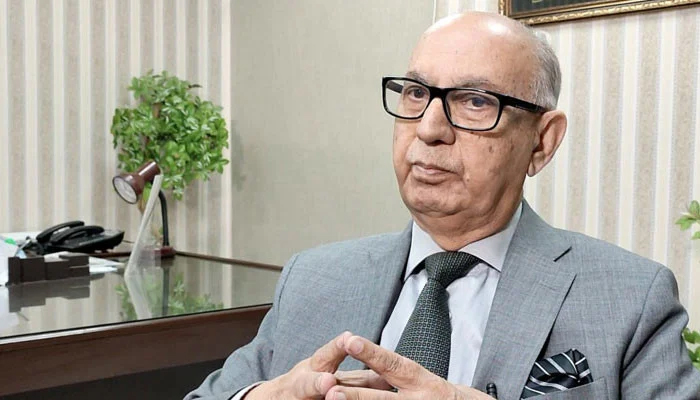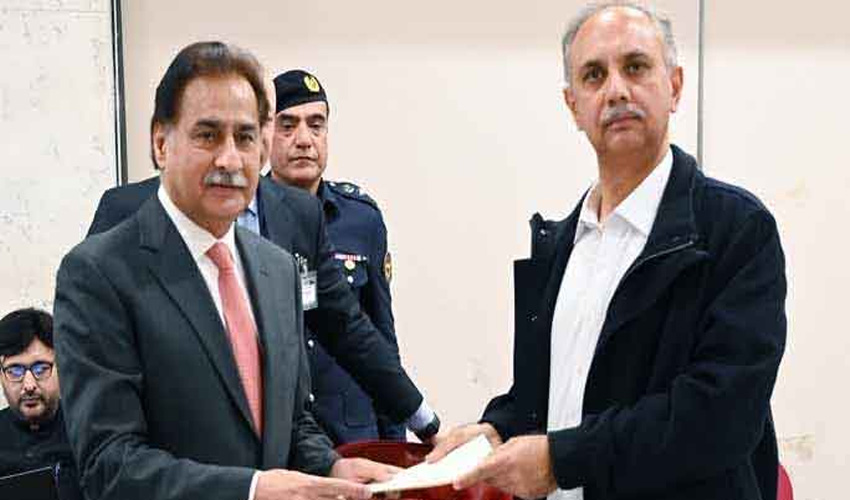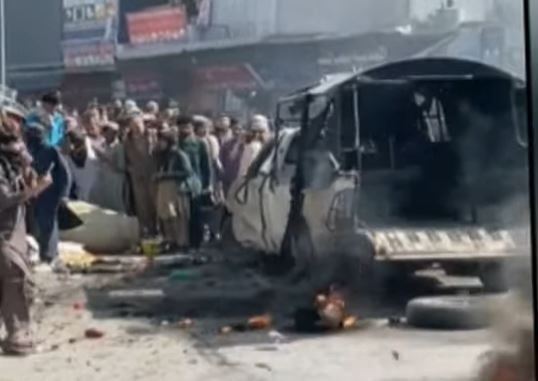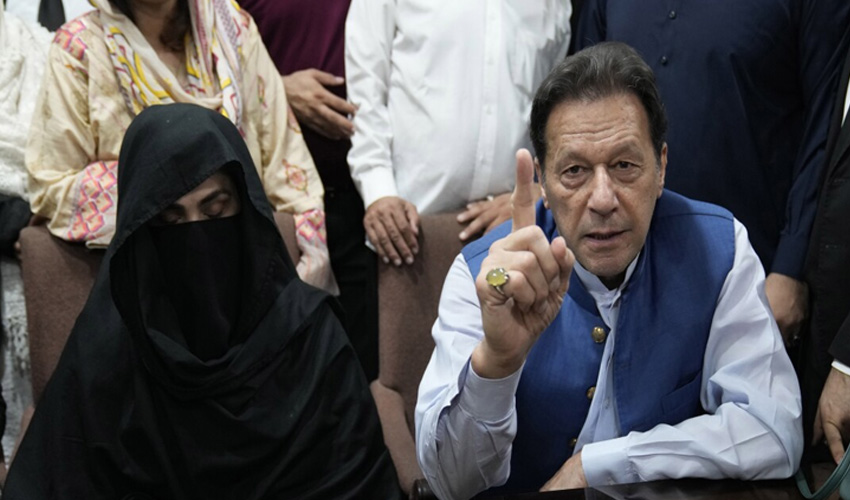The third round of negotiations between Pakistan Tehreek-e-Insaf (PTI) and the government negotiation committee concluded on Thursday at Parliament House.
This crucial in-camera session follows two previous rounds, the first on December 27, 2024, and the second on January 2, 2025.
Both sides have been engaged in these talks to address a series of pressing political issues amid rising tensions between the ruling coalition and the opposition party.
RELATED: First round of PTI-govt talks concludes ‘positively’
The government’s negotiating team includes senior figures such as Irfan Siddiqui, Rana Sanaullah, Khalid Maqbool Siddiqui, and Farooq Sattar, while PTI's delegation features leaders Omar Ayub, Asad Qaiser, Ali Amin Gandapur, Allama Raja Nasir Abbas, and Sahibzada Hamid Raza.
During today’s meeting, PTI leader Omar Ayub presented the party’s written demands to Speaker Sardar Ayaz Sadiq. The document, which outlines several key issues, has been signed by six members of PTI’s negotiation committee, including Ayub, Ali Amin Gandapur, Salman Akram Raja, and Sahibzada Hamid Raza.
PTI's demands
At the heart of PTI's demands is the formation of two independent commissions of inquiry, both to be headed by the Chief Justice or three judges of the Supreme Court.
The first commission is to investigate the arrest of PTI founder Imran Khan on May 9, 2023, including an inquiry into the actions of Rangers and police entering the Islamabad High Court, as well as a detailed probe into CCTV footage surrounding the events that unfolded after Khan's arrest. The PTI also calls for an investigation into alleged media censorship, journalist harassment, and the nationwide internet shutdown.
The second commission is to examine the incidents that transpired from November 24-27, 2024, especially focusing on the use of force against protesters in Islamabad.
PTI demands that the commission identify those responsible for the excessive use of force and investigate the challenges faced by citizens when registering FIRs. Additionally, it calls for an inquiry into media censorship during these events. PTI has also demanded that the federal and provincial governments issue orders for the release or suspension of sentences of all political prisoners.
Govt’s response and timeline

However, there are indications that this deadline could be extended, depending on the progress made in the negotiations.
Siddiqui further stressed that a positive outcome would require mutual agreement on all points and that the government's stance remains focused on finding a constitutional resolution.
The government also reassured that the negotiations would not be rushed, allowing adequate time for deliberation before any final agreements are reached.
Possible roadblocks
The PTI has set a clear deadline of January 31 for the conclusion of these talks, emphasizing the urgency of resolving issues related to the political prisoners and the judicial commission.
However, PTI leaders, including Omar Ayub and Salman Akram Raja, have warned that failure to meet these demands could lead to the collapse of the negotiations and the abandonment of any further rounds of talks.
Ayub remarked that PTI has been “pushed against the wall,” and that the party’s only recourse would be to mobilize public support through widespread protests.
The government’s position remains cautious, with officials emphasizing the need for further consultations and deliberations before a formal response to PTI’s charter of demands is made.
The ruling coalition is also keen to ensure that the process adheres to legal and constitutional standards, avoiding any undue haste in addressing the complex political matters at hand.



























